The Future of Dentistry: Innovations and Trends for Healthy Smiles
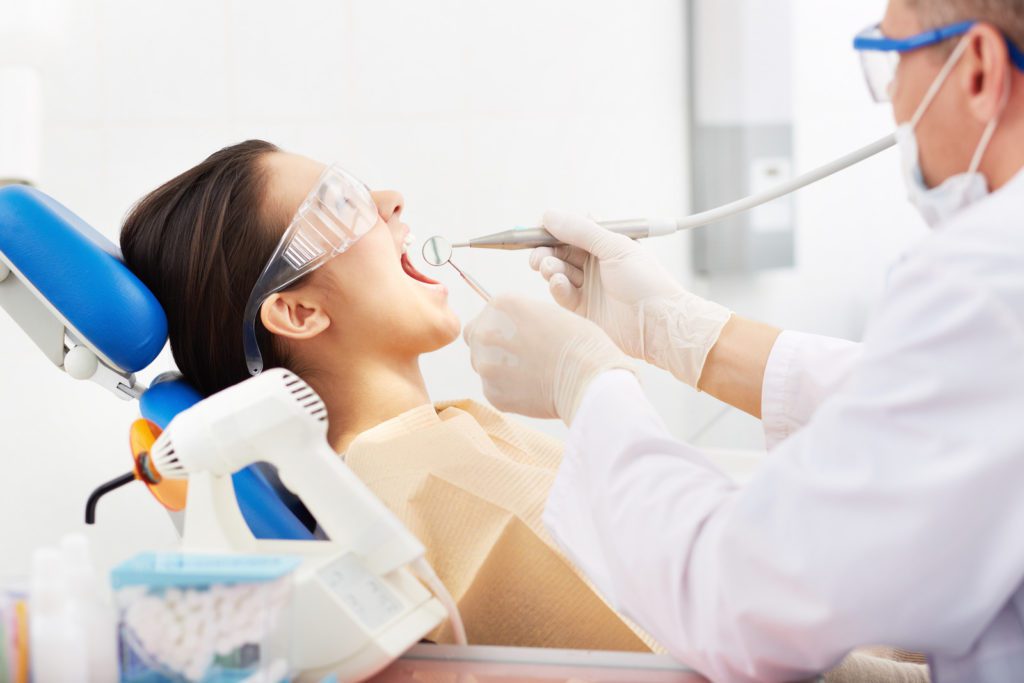
A dentist specializes in oral health, treating and preventing dental issues. They offer routine care, emergency dental care services, and aesthetic treatments. The dental profession encompasses a wide array of services aimed at ensuring optimal oral health for all ages. Dentists diagnose and manage oral diseases, perform cleanings, fill cavities, extract teeth, and offer advice on proper brushing and flossing techniques. Regular dental visits are crucial not only for maintaining healthy teeth and gums but also for early detection of potential problems such as tooth decay, gum disease, and oral cancer. By prioritizing preventative care and implementing cutting-edge technology, dentists play a pivotal role in safeguarding one’s overall well-being. Trusting in a skilled dentist paves the way for a healthy smile and contributes significantly to good systemic health. The Importance Of Regular Dental Checkups The importance of regular dental checkups cannot be overstated. Routine visits to your dentist are crucial for maintaining not just oral health but also play a significant role in your overall well-being. These checkups are not just about preventing cavities; they’re about managing the health of your teeth and gums, diagnosing conditions before they become severe, and even detecting diseases that may affect other parts of your body. Let’s dive into the reasons why keeping that dental appointment is vital. Advantages Of Preventive Dentistry Preventive dentistry is the cornerstone of ensuring a healthy mouth. Minimize Plaque Build-up: Regular cleanings remove the buildup of plaque and tartar that routine brushing can miss. Protect Against Gum Disease: Cleanings and checkups can prevent gum disease, which can lead to early tooth loss. Maintain Overall Health: Dental health is connected to cardiac health, diabetes management, and more. Cost-effective Measures Scheduling regular visits to the dentist can save money in the long run. Avoid Expensive Treatments: Catching problems early on means less costly treatments are required. Manage Minor Issues: Small cavities can be filled before they become root canals or require crowns. Insurance Benefits: Many insurance plans cover preventive care, making checkups an affordable choice. Early Detection Of Dental Issues Spotting dental problems before they become serious is one of the most significant benefits of regular checkups. Cavities: Catching tooth decay early means easier and more effective treatment. Oral Cancer Screening: Routine visits often include screenings for oral cancer, which is critical for early intervention. Gum Health: Monitoring gums for signs of periodontal disease can prevent irreversible damage. Role Of Dentists In Preventive Care Dentists are not just ‘tooth doctors’; they are essential providers of preventive care services. Educate Patients: Dentists provide instructions on proper brushing, flossing, and nutrition for optimal dental health. Tailored Dental Plans: They devise personalized care plans to meet each patient’s unique dental needs. Innovative Techniques: Professionals use the latest in dental technology and methods to prevent diseases and maintain oral health. Understanding Different Types Of Dental Specialists Maintaining a healthy smile, understanding the different types of dental specialists and their roles is crucial. Each specialist brings a unique set of skills and services designed to address specific oral health needs. From general cosmetic dentistry to more specialized areas, this guide will help you navigate the world of dental care professionals. General Dentists General dentists are the primary dental care providers for patients of all ages. They are responsible for diagnosing, treating, and managing overall oral health care needs. Overview Of Their Services Routine cleanings and examinations Preventive care to avoid cavities and gum disease Fillings, root canals, and extractions Crowns, bridges, and veneers Importance Of Regular Visits Regular visits to a general dentist are essential for maintaining dental health. These visits allow for early detection and treatment of potential issues, preventing them from escalating into more serious problems. Orthodontists Orthodontists specialize in correcting irregularities of the teeth and jaw. They are experts in treating misaligned bites and straightening teeth. Corrective Treatments Braces, both traditional metal and clear aligners Retainers for maintaining teeth positions post-treatment Corrective jaw surgery in collaboration with oral surgeons Benefits Of Orthodontic Care Orthodontic treatments lead to better oral health, improved ability to chew and digest food, and a more aesthetically pleasing smile. Oral Surgeons Oral surgeons handle complex dental issues that require surgical intervention. They work with soft and hard tissues of the oral and maxillofacial areas. Surgical Procedures Wisdom tooth extractions Dental implants Corrective jaw surgery Tumor removal in the oral cavity Cases Requiring Oral Surgery Patients might need oral surgery for impacted teeth, facial pain, TMJ disorders, or after facial trauma. Oral surgeons also handle cases that require sedation beyond what general dentists can provide. Technologies Transforming Modern Dentistry The world of dentistry is experiencing a technological revolution, changing the face of patient care and treatment outcomes. From precise diagnostics to innovative treatment methods, modern dental clinics are embracing an array of groundbreaking technologies. These advancements not only enhance the patient experience but also streamline dental procedures, ultimately leading to improved oral health. Let’s explore the significant tech trends that are shaping the future of dentistry. Digital Dentistry Advancements Digital dentistry is at the forefront of transforming traditional dental practices. By leveraging digital and computer-based technologies, practitioners achieve greater accuracy and efficiency. Electronic health records, digital X-rays, and intramural scanners are examples that allow for better patient management and diagnosis. 3d Imaging And Printing The integration of 3D imaging and printing in dentistry has been a game-changer. This technology aids dentists in creating precise models of a patient’s dentition, which is integral for implant planning, orthodontics, and reconstructive surgery. These detailed visualizations allow for personalized treatment planning and improved patient outcomes. Use Of CAD/cam Technology Computer-Aided Design (CAD) and Computer-Aided Manufacturing (CAM) technologies have revolutionized the creation of dental restorations. CAD/CAM enables the design and production of dental crowns, veneers, inlays, onlays, and bridges in a single visit, significantly reducing the waiting time for patients. Tele-dentistry Tele-dentistry offers a convenient solution for remote consultations, follow-ups, and preliminary assessments. This digital approach to dental care ensures continuous patient engagement and helps maintain oral health, especially for those with limited access
Cracking the Mystery of Cavities: Exploring the Basics of Tooth Decay
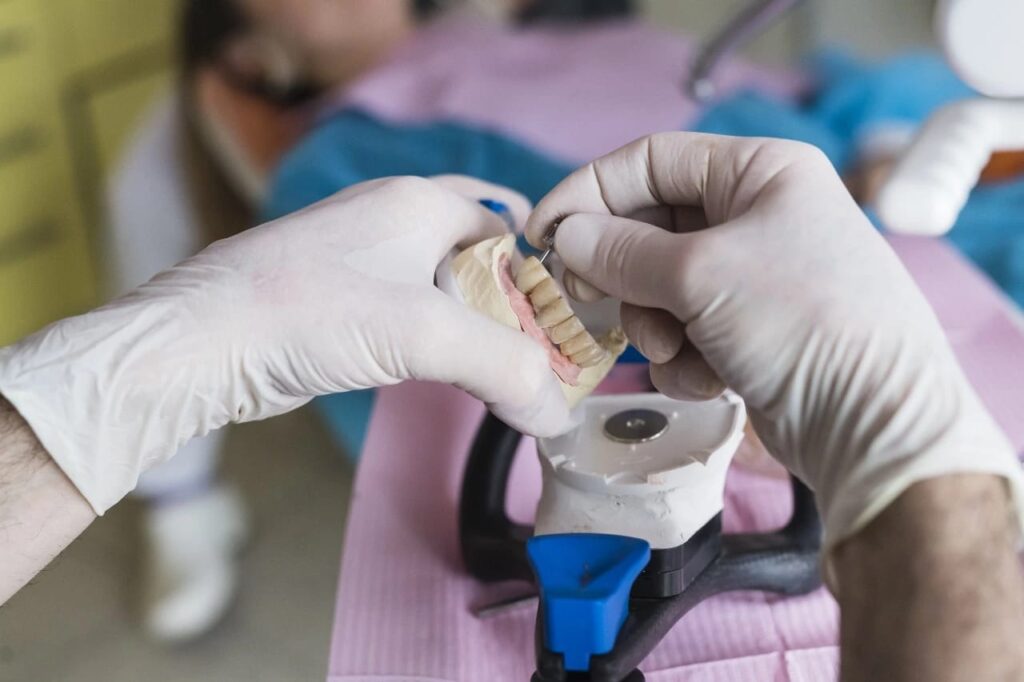
Cavities are damaged areas in the teeth that develop into tiny holes. They are caused by a combination of factors, including bacteria, sugary foods, and poor oral hygiene. Cavities, also known as tooth decay or dental caries, rank among the most common health problems worldwide. They affect people of all ages, though children and teenagers are particularly susceptible. The condition starts when plaque, the sticky film of bacteria that constantly forms on your teeth, interacts with the sugars and starches in your diet. This interaction produces acids that can erode the tooth enamel, leading to cavities. Regular dental visits and good brushing and flossing habits are your first defense against cavities. Addressing cavities early is crucial because they can lead to more serious issues like toothaches, infections, and tooth loss. Therefore, understanding the causes and prevention of cavities is essential for maintaining overall dental health. What Are Cavities? Understanding what cavities are is essential for maintaining a healthy smile. These troublesome tooth issues can cause discomfort and lead to significant dental problems if left unchecked. This segment will shed light on the nature of cavities, demystifying them with a clear explanation and diving into their causes. Let’s sink our teeth into the world of dental caries and learn how to keep them at bay. Definition Of Cavities A cavity, medically referred to as dental caries, is a hole in the tooth that develops over time. Cavities form when the enamel, the hard outer layer of your tooth, begins to break down. This decay process is not instantaneous; it’s the result of a prolonged attack on the enamel by acids. When the enamel is compromised, the inner layers of the tooth can become exposed and damaged, leading to the need for professional dental intervention. Causes Of Cavities The genesis of cavities can often be traced back to a combination of factors that impact oral health. Primarily, they originate from plaque, a sticky film of bacteria that constantly forms on the teeth. When you consume foods and drinks high in sugars and starches, the bacteria in plaque produce acids. Without proper oral hygiene, these acids can erode the tooth enamel, creating cavities. High-sugar and starchy diet consuming food and beverages Poor oral hygiene failing to brush and floss regularly Lack of fluoride a deficiency that can weaken enamel Frequent snacking or sipping allows sugars to feed bacteria Dry mouth condition reduces saliva, a natural defense against cavities These are just a few of the key players in cavity development, which, combined with individual factors like genetics and tooth morphology, define a person’s susceptibility to dental caries. Symptoms And Signs Detecting the early signs of cavities can prevent more severe dental problems and ultimately save your teeth. Knowing what to look for is essential to catch the sneaky onset of cavities. In this section, we explore the various symptoms that cavities may present as they develop. At first, these signs may be subtle, but as a cavity progresses, symptoms often become more pronounced and may even lead to significant discomfort or pain. Early Signs Of Cavities Initial stages of tooth decay are not always noticeable, but certain clues can signal the presence of a cavity. Being vigilant about these symptoms can aid in early intervention and treatment. Spotting Discoloration: Look for any white, brown, or black staining on the surface of your teeth. Mild Sensitivity: Feeling a slight twinge when consuming hot, cold, or sweet foods. Chalky Matte Appearance: A noticeable loss of the shiny, reflective enamel surface. Progression Of Symptoms As a cavity advances, the symptoms become more distinct and may intensify. Take note of the following progression of signs: Stage Symptoms Mild Progression Increased tooth sensitivity Mild to moderate pain when biting down Visible holes or pits in your teeth Advanced Decay Severe toothache Swelling in the nearby gum area Possible development of an abscess Consistent oral hygiene practices are critical for preventing cavities. However, if you experience any of these symptoms, seek prompt dental advice to address the issue before it escalates. Regular dental check-ups can also assist in early detection and treatment of cavities. Diagnosing Cavities Uncovering the presence of cavities is a critical step to maintaining optimal dental health. Diagnosing cavities early can prevent complex common dental procedures and ensure tooth longevity. A comprehensive approach to detection merges both professional observations during a dental examination and insights gleaned from X-rays. Together, these diagnostic tools allow dentists to identify cavities accurately and prescribe the most effective treatments to keep your smile both healthy and bright. Dental Examination A dental examination is the first line of defense against tooth decay. During the examination, dentists use a variety of tools to check for soft spots or visual signs of decay. The process often includes: Visual Inspection: A thorough visual assessment can reveal plaque and tartar accumulation that could harbor bacteria, leading to cavities. Probing: Using a dental instrument known as an explorer, dentists can detect areas of enamel softening, a common indicator of cavity formation. Disclosing Solutions: These special dyes can expose the regions on teeth where plaque is prevalent, indicating potential trouble spots for cavity development. These methods help narrow down the problematic sections that may require closer examination or immediate intervention. X-rays Dental X-rays are indispensable when it comes to spotting cavities not visible to the naked eye. They provide a detailed picture of: Location Extent of Decay Possible Treatments Between Teeth Early Stages to Advanced Decay Fluoride Treatments to Fillings Below the Gum Line Emerging to Severe Cavities Deep Cleanings to Root Canals X-rays help reveal not only the cavities’ existence but also their development stage. High-resolution images enable dentists to design a treatment plan that effectively targets and manages each specific case of decay. Preventing Cavities Cavities are more than just a minor inconvenience—they can lead to serious dental issues if left unchecked. But fear
Sleep Apnea Solutions: Breathe Easy, Rest Better!

Sleep apnea is a sleep disorder characterized by pauses in breathing or periods of shallow breathing during sleep. It’s a serious condition that can lead to various health complications. Sleep apnea is a common yet potentially severe condition, affecting millions worldwide. Recognizing its symptoms is crucial; they include loud snoring, choking or gasping during sleep, and feeling unrefreshed upon waking. People with sleep apnea often experience daytime fatigue, which can impair their ability to function in daily activities and increase the risk of accidents. The disorder can be categorized into two main types: Obstructive Sleep Apnea (OSA), due to physical blockages, and Central Sleep Apnea (CSA), caused by brain signal issues. Early diagnosis and treatment are essential in managing sleep apnea and can significantly improve the quality of life for those affected. Treatment options range from lifestyle changes and breathing devices to surgery, depending on the severity and type of sleep apnea. What Is Sleep Apnea? Sleep apnea is a serious sleep disorder that can have significant health repercussions. It is characterized by repeated interruptions in breathing during sleep. These pauses can last from a few seconds to minutes and may occur 30 times or more an hour. This chronic condition disrupts sleep and results in poor-quality rest, making you feel tired upon waking and increasing the risk of other health complications. Definition Of Sleep Apnea Sleep apnea is defined as a disruption of breathing while asleep. The term “apnea” originates from the Greek word “apnoia,” which means “without breath.” People with sleep apnea cease breathing repeatedly through the night, a startling fact that highlights the condition’s severity. It often leads to a decrease in blood oxygen saturation, awakening the individual as the body reacts to the lack of oxygen. Types Of Sleep Apnea There are mainly three types of sleep apnea, each with distinct causes and treatments: Obstructive Sleep Apnea (OSA): The most common form, caused by a blockage of the airway when the soft tissue at the back of the throat collapses during sleep. Central Sleep Apnea (CSA): Occurs when the brain fails to signal the muscles that control breathing due to instability in the respiratory control center. Mixed Sleep Apnea: Also known as Complex Sleep Apnea, is a combination of both obstructive and central sleep apnea symptoms. Understanding these types is crucial for proper diagnosis and treatment, which may involve lifestyle changes, devices to keep the airway open, or surgery, depending on the severity and type of apnea. Signs And Symptoms If you often wake up feeling less than refreshed, or your partner complains about your snoring, you might be facing a common yet serious condition known as sleep apnea. Recognizing the signs and symptoms early can be critical for your health and well-being. Let’s dive into the common indicators and the impact this condition can have on your sleep quality. Common Signs Of Sleep Apnea Sleep apnea can often go unnoticed, as it manifests primarily during sleep. Notable signs include: Loud snoring, is often more prominent in obstructive sleep apnea. Episodes where you stop breathing during sleep — often reported by another person. Gasping for air during sleep, indicating a struggle to breathe properly. Morning headaches due to fluctuating oxygen levels during the night. Ongoing daytime drowsiness or fatigue, regardless of a full night’s sleep. Waking up with a dry mouth or sore throat. Difficulty concentrating during the day. Irritability or mood changes. Impact On Sleep Quality Sleep apnea has profound effects on your overall sleep quality. It disrupts the normal sleep cycle, leading to: Impact Description Fragmented Sleep Frequent awakenings prevent deep, restorative sleep phases. Excessive Daytime Sleepiness The body lacks the energy from a peaceful night’s sleep, resulting in fatigue and sleepiness. Decreased Cognitive Function Memory, attention, and decision-making skills can diminish due to poor sleep quality. Diagnosing Sleep Apnea Sleep apnea is a disorder characterized by pauses in breathing or periods of shallow breathing during sleep. As this can lead to serious health complications, accurate diagnosis is crucial. The following sections explore the different methods and tests used to diagnose sleep apnea, as well as the importance of detecting the condition early on. Diagnostic Methods And Tests Identifying sleep apnea involves a multi-faceted approach that combines patient history, physical examination, and various specialized tests. Here are the primary diagnostic tools used: Polysomnography (PSG): An overnight sleep study that records brain activity, eye movements, heart rate, blood pressure, oxygen levels, and breathing patterns. Home Sleep Apnea Testing (HSAT): A simplified version of PSG, conducted at home, to measure airflow, breathing patterns, and oxygen levels. Oximetry: This portable device measures oxygen saturation levels and can be used at home, but it is less comprehensive than PSG and HSAT. Multiple Sleep Latency Test (MSLT): Measures how quickly you fall asleep during the day to assess daytime sleepiness. Epworth Sleepiness Scale: A questionnaire that evaluates daytime sleepiness. Physical examination: An ENT doctor may check for obstructions or abnormalities in the airway. Importance Of Early Detection Catching sleep apnea early can greatly reduce the risk of complications such as hypertension, cardiovascular disease, and diabetes. Early detection is also associated with improved cognitive function and better overall quality of life. Examine the following key points that emphasize the need for prompt diagnosis: Lowered risk of complications due to sleep apnea. Increased effectiveness of treatment options when started early. Prevention of secondary conditions such as stroke or heart failure. Improvement in day-to-day performance and reduction in accidents related to sleep deprivation. Treatment Options Understanding the available treatment options for Sleep Apnea is crucial for those who live with this sleep disorder. Proper management can significantly improve quality of life and reduce the risk of related health complications. Treatments range from simple lifestyle modifications to medically prescribed interventions. Here, we explore the various strategies to take control of Sleep Apnea. Lifestyle Changes And Management Lifestyle changes play an integral role in the management of Sleep Apnea. For many, these adjustments can lead to substantial improvements. Key modifications include: Weight Loss:
Snoring Prevention Techniques: Silent Nights Ahead

Prevent snoring by maintaining a healthy weight and sleeping on your side. Avoid alcohol before bedtime as it can exacerbate the condition. Snoring—a common issue affecting countless individuals—can disrupt sleep quality and strain relationships. It’s not just the noise that’s bothersome; snoring can be a symptom of underlying health conditions, such as obstructive sleep apnea. A well-rounded approach to prevention includes lifestyle changes, strategic sleeping positions, and possibly medical interventions. Staying within a healthy weight range reduces throat constriction, while side-sleeping prevents the tongue from blocking the airway, which is often a cause of snoring. Establishing a regular sleep routine, avoiding sedatives, and using nasal strips or an anti-snoring device are additional measures one can take. By understanding and addressing the factors contributing to snoring, individuals can enjoy a quieter, more restorative night’s sleep. The Science Of Snoring The Science of Snoring involves a fascinating exploration into the nocturnal symphonies that many individuals unintentionally compose. Understanding why snoring occurs is not just about comfort or relationship harmony; it’s a window into the complexities of the human body. As we delve deeper into the anatomical and physiological aspects that contribute to snoring, remarkable insights emerge, empowering individuals to find solutions that could lead to a quieter, more restful night for everyone involved. Anatomy Of The Upper Airway The upper airway consists of several structures which, when not functioning optimally, can lead to the rumbles and roars of snoring. Starting from the nasal passages, down to the throat, and ending at the vocal cords, the upper airway is a critical air passageway. The anatomy includes: Nasal Passages: Allow for the inhalation and filtration of air. Pharynx: Connects the nose and mouth to the esophagus and larynx. Soft Palate: The soft tissue constituting the back of the roof of the mouth. Uvula: The dangling tissue seen at the back of the throat. Tongue: Assists in swallowing but can obstruct the airway when relaxed. Tonsils and Adenoids: Lymphatic tissue that can enlarge and block airflow. During sleep, muscles in the upper airway relax. If these structures relax too much, they can narrow the airway, causing turbulent airflow. This turbulent airflow then causes the soft tissues to vibrate, producing the snoring prevention sound. Contributing Factors To Snoring Certain factors increase the likelihood of snoring. These can be lifestyle-related, anatomical, or even due to certain health conditions: Anatomical Factors Lifestyle Factors Health Conditions Enlarged tonsils/adenoids Alcohol consumption Obstructive Sleep Apnea (OSA) Deviated septum Excessive weight Allergies Narrow airway Smoking Congestion from colds Menopause Poor sleep posture Hypothyroidism Age-related muscle tone reduction Use of sedatives/benzodiazepines Nasal polyps By addressing these contributors, one can often reduce or even eliminate snoring. Solutions include lifestyle adjustments, medical interventions, and in some cases, simple behavior modifications. The journey towards a quieter night starts with understanding the science behind snoring and its complex interplay with our daily lives. Lifestyle Changes Snoring isn’t just a nuisance to your bed partner; it can also be a harbinger of deeper health issues. Fortunately, lifestyle changes are among the most effective strategies to prevent snoring. By addressing common factors like body weight and sleep posture, you can improve your sleep quality and reduce snoring. Let’s explore these adjustments in detail to help you enjoy a quieter, more restful night. Weight Management Maintaining a healthy weight is crucial for snoring prevention. Extra pounds can lead to bulky throat tissue, which can narrow your airways and trigger snoring. Initiating a weight loss regimen can lighten this tissue and minimize snoring. Consider the following tips: Eat a balanced diet low in saturated fats and high in fiber. Include regular exercise in your routine. Reduce portion sizes and avoid eating late at night to enhance digestion. A diet and exercise plan tailored to your needs can assist not only in weight management but also in reducing snoring. Sleeping Position Your sleeping position can have a significant impact on snoring. For some individuals, sleeping on their back can cause the tongue and soft palate to collapse to the back of the throat, obstructing the airway and causing snoring. Consider these adjustments: Position Beneficial Effects on Snoring Side Sleeping Helps keep the airways open and reduces the risk of tongue and soft tissue collapse. Elevated Head Position Reduces nasal congestion and may improve airway alignment. Fetal Position Can alleviate pressure on the airways and minimize snoring. Make sure your sleep environment is set up to encourage a proper position. Use supportive pillows or special anti-snore devices that promote side sleeping or elevate your head, creating an optimal posture for clear breathing. Home Remedies Snoring is a common problem that affects many and can disrupt a good night’s sleep for both the snorer and their partner. Fortunately, several home remedies can help prevent snoring and improve sleep quality. These methods are non-invasive, cost-effective, and often widely accessible, making them an excellent first step in combating nighttime disturbances. Nasal Strips One of the simplest ways to alleviate snoring is through the use of nasal strips. They work by gently widening the nostrils, which can improve airflow and reduce the vibrations that lead to snoring. Applying a nasal strip before bed is easy: Cleanse the nose to ensure the strip adheres properly. Place the strip across the bridge of the nose following the product instructions. Enjoy a more peaceful sleep with clear nasal passages. Humidifiers Dry air can irritate the nasal and throat membranes, exacerbating snoring. A humidifier in the sleeping area can introduce moisture back into the air, creating a more conducive environment for smoother breathing. Steps to use a humidifier for snoring prevention include: Fill the humidifier with clean water. Place it in your bedroom, ideally close to the bed. Turn it on before sleep, adjusting settings for optimal humidity levels. Oral Appliances For those looking for a direct approach, oral appliances designed for snoring prevention can be an effective remedy. These devices are similar
Sedation Dentistry: Your Gateway to Anxiety-Free Dental Care
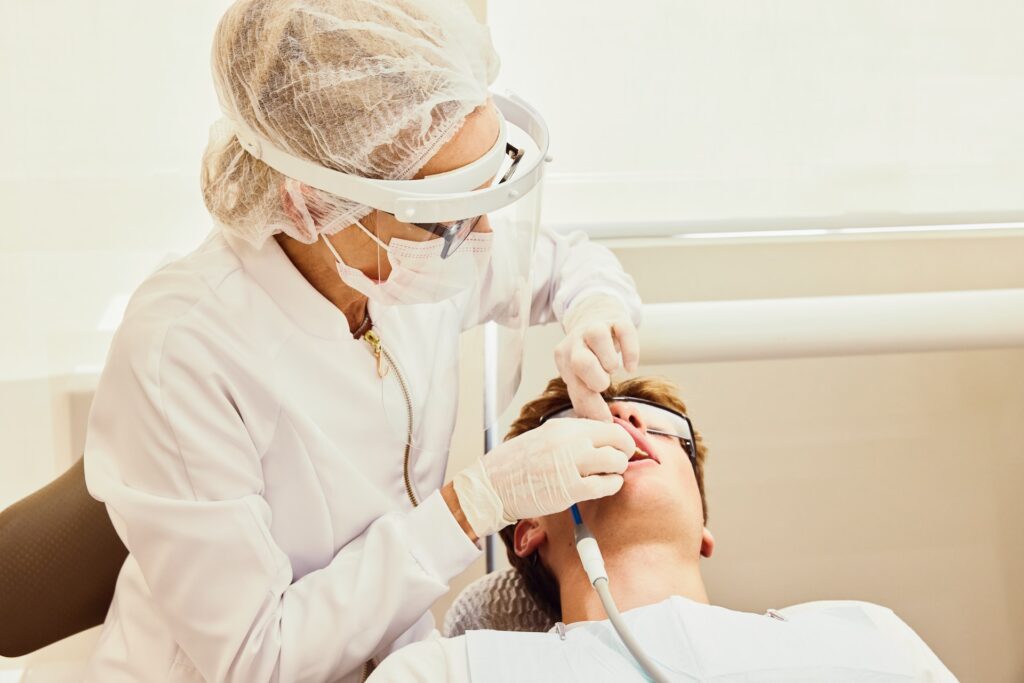
Sedation dentistry helps patients relax during common dental procedures. It involves the use of medication to provide a calming experience. Sedation dentistry caters to those with dental anxiety or a low pain threshold, ensuring a stress-free visit to the dentist. This service ranges from mild sedatives for relaxation to deeper options that can induce sleep. Known for enhancing patient comfort, sedation options include nitrous oxide, oral sedatives, and intravenous drugs. Tailored to patient needs and the complexity of dental work, it enables safe and efficient dental care. Embracing this approach can transform a daunting dental visit into a serene and manageable health routine, allowing individuals to receive necessary treatments without the burden of fear. Dentists trained in sedation techniques prioritize safety and patient well-being, making modern dental care accessible to everyone. The Benefits Of Sedation Dentistry Embarking on a dental journey can often be daunting, but sedation dentistry is rapidly transforming patient experiences worldwide. This innovative practice melds modern dentistry with the soothing effects of sedation, offering a myriad of benefits designed to alleviate concerns and enhance overall dental care. From calming nerves to streamlining complicated procedures, sedation dentistry is a game-changer for patients and dentists alike. Reduced Anxiety And Fear Visiting the dentist can trigger stress for many individuals. Sedation dentistry counters this by creating a serene and relaxed environment. By administering safe, controlled sedatives, patients achieve a tranquil state, diminishing apprehension and leading to a more positive dental experience. This approach not only makes the visit less stressful but also encourages regular dental care, crucial for long-term oral health. Pain Management And Comfort Pain is a significant deterrent that keeps people from seeking necessary dental treatment. Sedation dentistry addresses this head-on by offering superior pain management solutions. Various levels of sedation, from mild to moderate and deep, can be tailored to the individual’s comfort and the nature of the dental procedure. The result is a painless and comfortable session, allowing patients to undergo even the most intensive treatments with ease. Time And Efficiency Enhanced Cooperation: Sedatives promote patient cooperation, enabling dentists to work more efficiently. Reduced Movement: Patient fidgeting and movement can hinder progress; sedation keeps this to a minimum. Multiple Procedures in One Visit: With sedation, it’s possible to combine several treatments into a single appointment, saving valuable time. Sedation dentistry makes lengthy and complex procedures more manageable, often reducing the number of visits required and allowing for a more streamlined treatment timeline. This efficient approach benefits not only the patient’s schedule but also accelerates the journey to a healthier smile. Types Of Sedation Dentistry Exploring the world of dentistry, one can’t help but notice the advancements in patient comfort through sedation dentistry. It’s become a cornerstone for patients who experience anxiety or fear about dental procedures. There’s a spectrum of sedation levels available to cater to individual needs, ensuring a calm and pain-free experience. In this section, we’ll delve into the common types of sedation dentistry used today. Oral Sedation Oral sedation is a popular choice for its ease of administration. Patients simply take a pill before the procedure. Depending on the dose, the sedation can range from minimal to moderate. For those who take a larger dose, it’s common to become drowsy enough to fall asleep, yet they can be awakened with a gentle shake. Inhalation Sedation (nitrous Oxide) Nitrous oxide, also known as laughing gas, is inhaled through a mask over the nose. It helps patients relax and wears off quickly after the mask is removed. This type of sedation allows patients to drive home after the procedure, making it a convenient option for those with busy schedules. General Anesthesia General anesthesia is the most profound level of sedation where patients are in a deep sleep throughout the procedure. They will have no memory of the treatment and will not feel any pain. It’s often reserved for extensive dental surgeries or patients with significant dental phobias. Post-procedure, patients will need time to recover and must arrange transportation as driving is not an option immediately following. Who Can Benefit From Sedation Dentistry At the heart of personalized dental care is a deep understanding that every patient’s needs are unique – especially when managing comfort during dental procedures. Sedation dentistry has emerged as a transformative approach for many patients who might otherwise avoid important dental care due to fear, discomfort, or medical conditions. Discover if you or a loved one could reap the benefits of this gentle, calming dental solution. Dental Phobia And Anxiety It’s no secret that dental appointments can evoke fear in many individuals. Fears ranging from mild nervousness to severe dental phobia can prevent necessary care, compromising dental health. Sedation dentistry provides an effective solution for those who experience: Anxiety when thinking about dental instruments Stress at the thought of sitting in the dentist’s chair A history of traumatic dental experiences General apprehension toward dental procedures Safe and controlled sedation options offer a soothing experience, encouraging patients to receive regular care without anxiety. Sensitive Gag Reflex A sensitive gag reflex can transform simple dental procedures into difficult challenges. This reflex is a natural defense mechanism, but for some, it is overly sensitive, leading to discomfort during even basic treatments. Sedation dentistry offers respite by: Minimizing the sensation that triggers the reflex Allowing the patient to relax, reducing involuntary responses Enabling the dentist to perform necessary procedures efficiently and comfortably Complex Dental Procedures Some dental procedures are more intricate and lengthy than others, which may necessitate advanced pain management strategies. Sedation dentistry is particularly advantageous for: Procedures Benefits of Sedation Dentistry Wisdom teeth extraction Counteracts discomfort and keeps the patient calm during extended surgery Dental implants Alleviates the intimidation factor of invasive surgery, ensuring relaxation Root canal therapy Assists in managing pain, allowing for a smoother procedure Through sedation, patients can experience a less daunting and more comfortable procedure,
The Difference between Emergency and Routine Dental Care
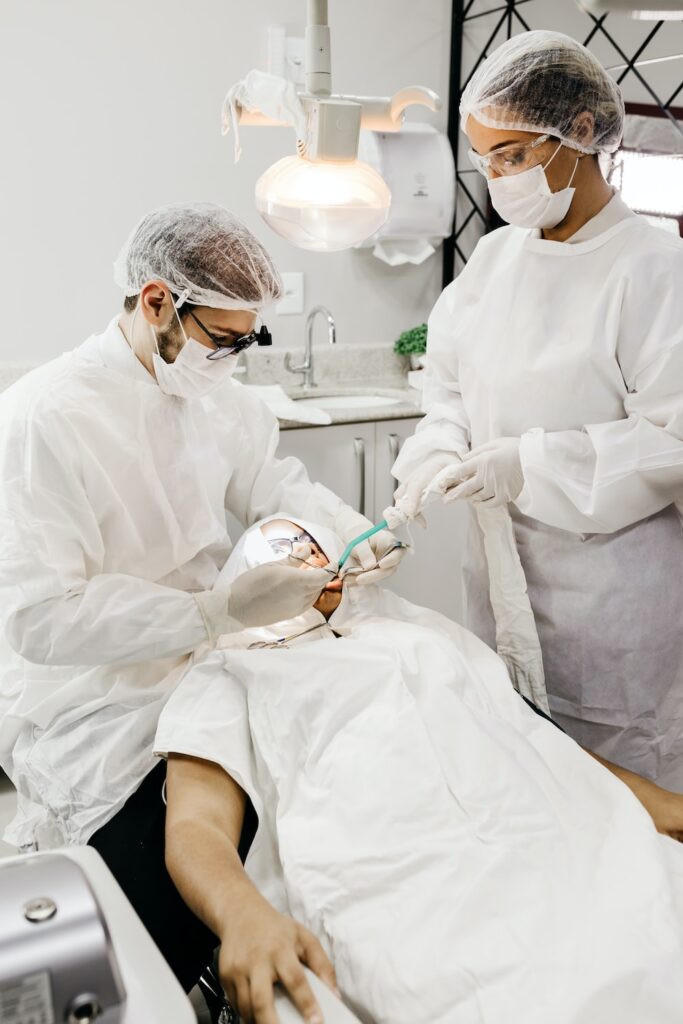
Emergency dental care means immediate treatment for dental issues that require urgent attention, ensuring prompt relief and preventing further complications. In stressful situations where sudden tooth pain, severe injury, or other dental emergencies occur, receiving prompt care is crucial. Whether it’s a broken tooth, severe pain, or an abscess, Dorset Dental offers quick, efficient, and effective treatment to address the problem and alleviate discomfort. By seeking emergency dental care, patients can receive immediate attention from skilled professionals to manage their dental emergencies and maintain optimal oral health. Don’t let dental emergencies cause unnecessary suffering – prioritize emergency dental care to address urgent dental issues promptly and prevent further complications. Understanding Dental Emergency Dental emergencies can be both painful and distressing, requiring immediate attention and care. Understanding what constitutes a dental emergency and why prompt dental care is crucial during such situations is vital to safeguard your oral health. In this article, we will discuss common dental emergencies, their causes, and the importance of seeking prompt dental care during emergencies. Common Dental Emergencies And Their Causes Several dental emergencies can occur unexpectedly, causing immense discomfort and inconvenience. Here are some of the most common dental emergencies and their causes: Dental Emergency Causes Toothache An abscessed tooth, tooth decay, gum infection Broken or Chipped Tooth Accidental trauma, biting down on a hard object Knocked-Out Tooth Sports injury, fall, accident Loose or Lost Filling Wear and tear, decay beneath the filling Lost Crown or Dental Restoration Weakened tooth structure, trauma The Importance of Prompt Dental Care During Emergencies When dental emergencies occur, prompt care and attention can make all the difference in preventing further complications and preserving your oral health. Here’s why immediate dental care during emergencies is crucial: Relief from Pain: Seeking prompt dental care can help alleviate the pain and discomfort associated with dental emergencies. Prevent Infection: Dental emergencies often involve potential exposure to bacteria and can lead to infection if left untreated. Immediate treatment can prevent the spread of infection. Preserve Tooth Functionality: Timely dental care can help save a damaged tooth, preventing the need for extraction and preserving its functionality. Protect Adjacent Teeth: Addressing dental emergencies promptly can protect the surrounding teeth from further damage or complications. Promote Oral Health: By seeking immediate dental care, you can ensure the overall health and well-being of your oral cavity, preventing long-term dental issues. Understanding dental emergencies and recognizing the importance of seeking prompt dental care during such situations is crucial for maintaining your oral health. By being aware of common dental emergencies, their causes, and the benefits of immediate treatment, you can ensure that your smile remains healthy and beautiful even in the face of unexpected dental problems. Signs And Symptoms of Dental Emergencies Recognizing the signs and symptoms is crucial in determining the need for immediate care. Toothaches, injuries, infections, and other dental issues can arise unexpectedly, causing severe discomfort and even worse complications if left untreated. Understanding the indicators of a dental emergency and knowing when to seek prompt dental care can help alleviate pain, prevent further damage, and preserve your oral health. We will explore the common signs and symptoms of dental emergencies and guide you on when it’s appropriate to seek immediate professional assistance. Recognizing The Signs of A Dental Emergency Knowing how to identify a dental emergency allows you to take immediate action and seek the appropriate dental care. Here are some crucial signs that indicate a dental emergency: Severe toothache or persistent pain Swelling in the gum or face Bleeding from the mouth or gums Loose or knocked-out tooth Cracked or fractured tooth Severe sensitivity to hot or cold temperatures Difficulty in chewing or biting down Persistent bad breath or foul taste in the mouth Visible pus around the tooth or gums If you experience any of these symptoms, it’s crucial to take them seriously and seek immediate dental attention to prevent further complications. Understanding When to Seek Immediate Dental Care While dental issues vary in severity, not every dental problem requires immediate attention. However, some situations demand immediate dental care. If you encounter any of the following scenarios, it’s essential to seek immediate dental care: A knocked-out tooth: If your tooth gets knocked out due to trauma or injury, you must urgently visit a dentist. Time is critical in attempting to save the tooth, so prompt action is crucial. Severe tooth pain: Excruciating toothache that persists for more than a day or two may require immediate attention. It could indicate an infection or an underlying dental issue that requires prompt treatment. Persistent bleeding: If you experience uncontrollable bleeding from your mouth or gums, it’s crucial to seek immediate dental care. Bleeding may indicate an injury, gum disease, or an oral infection that requires professional attention. Sudden swelling or inflammation: Swelling in the gum or face can indicate an abscess, infection, or other serious dental condition. Seeking immediate dental care is necessary to diagnose and treat the problem effectively. Remember, it’s better to be safe than sorry, and seeking early treatment can prevent further damage to your teeth and gums. Common Types of Dental Emergencies Dental emergencies can occur unexpectedly and require immediate attention. These situations may include severe toothaches, knocked-out teeth, or broken dental restorations. Seeking emergency dental care is crucial to alleviate pain and prevent further damage to oral health. Dental emergencies can strike at any time, causing intense pain and discomfort. Being aware of the common types of dental emergency care and understanding how to manage them can make a big difference in preserving your oral health. In this article, we will explore the various dental emergencies care that may arise, including severe toothache, chipped or broken teeth, knocked-out teeth, abscessed teeth, and lost fillings or crowns. Knowing how to respond to these emergencies promptly can help alleviate pain and prevent further damage. Severe Toothache: Causes And Management A severe toothache can be
6 Tips From Your Emergency Dentist In Scarborough, ON

An emergency dentist provides urgent dental care, often offering same-day appointments. These professionals address acute oral pain, injuries, or infections requiring immediate attention. Seeking a Scarborough emergency dentist can be a crucial choice when faced with sudden dental issues such as a knocked-out tooth, severe toothache, or a broken crown. These experts aim to alleviate pain and prevent further damage to your oral health. With services often available beyond regular clinic hours, emergency dentists stand ready to treat your dental emergencies efficiently and effectively. Their quick response and specialized care ensure that dental crises are managed with the utmost urgency, offering relief when patients need it the most. Trust in an emergency dentist for reliable, prompt treatment during dental distress. Recognizing Dental Emergencies It’s crucial to know when a dental issue is an emergency. Not every toothache or dental discomfort warrants immediate care, but some oral health complications require urgent attention. Below, the differences between non-urgent dental problems and true emergencies are explored, alongside signs that suggest you need to seek immediate professional help. Timely action can often save your teeth, prevent infection, and reduce the need for extensive, costly dental procedures down the line. Understanding Types Of Dental Emergencies Dental emergencies can strike at any moment, and understanding what constitutes an emergency is the first vital step toward managing your oral health. Generally, these are incidents that involve severe pain, significant bleeding, or trauma that results in tooth loss or damage. Immediate attention from a dentist is crucial in these cases. Type of Emergency Description Examples Infections Serious infections like an abscess can be life-threatening and demand prompt treatment Swollen gums, throbbing pain, pus Physical Trauma Injury causing tooth displacement, fracture, or loss Knocked-out tooth, broken tooth Severe Pain Intense, continuous pain indicates an underlying problem Persistent toothache, pain when biting Identifying Symptoms That Warrant Immediate Attention Not all dental problems exhibit clear signs, but there are symptoms to watch for that dictate the need for emergency care. Below is a list that, if experienced, should prompt an immediate call to your dentist or a trip to an emergency dental clinic: Sudden or Severe Toothache: This could signify an infection or other serious dental issue. Loose or Knocked-Out Tooth: With prompt action, a dentist can possibly save the tooth. Uncontrollable Bleeding: Continuous bleeding after an oral surgery or from an injury requires urgent dental care. Swelling in the Jaw or Mouth Area: This could indicate a serious infection such as an abscess. Visible Signs of Infection: If you notice pus, a foul taste in your mouth, or a fever alongside dental pain, it’s time to seek immediate help. These symptoms not only cause significant discomfort but can also be the harbingers of more serious health issues if left untreated. 6 Tips From Your Emergency Dentist In Scarborough Welcome to the ultimate guide on maintaining your pearly whites with the expertise of your emergency dentist in Scarborough. Navigating dental emergencies can be daunting, but fear not. Armed with the right knowledge and habits, courtesy of your go-to Scarborough dental professionals, you will confidently protect and maintain your oral health. Below, uncover the six pivotal tips that will forever transform how you address your dental care routine. Remember That Dental Treatments Are Not Magical Timely intervention is crucial for dental emergencies. Recognize that while dentists work wonders, they cannot reverse damage caused by neglect or trauma overnight. Immediate care can save your tooth, but healing and full recovery take time. Patience and following your dentist’s advice are essential for managing your expectations and outcomes. Cosmetic Dentistry Is About More Than Appearance Underestimating the value of cosmetic dentistry is common. It not only enhances your smile but also improves overall dental function. Treatments like veneers or crowns protect damaged teeth, while aligners correct misalignments that could otherwise lead to bigger issues. Cosmetic dentistry offers health benefits that contribute to a lasting and healthy smile. Prevent Smoking Avoid tobacco products to protect against gum disease, tooth discoloration, and oral cancer. Smoking hinders blood flow to the gums, impeding healing and decreasing the success rates of dental treatments. Kick the habit for a healthier mouth and improved outcomes with dental interventions. Stay Away From Restricted Foods Heed your dentist’s advice on foods and beverages to avoid following a dental procedure. Hard, sticky, or chewy foods can disrupt the healing process or damage dental work. Opt for soft foods and clear liquids as directed to safeguard your dental health. Maintain Proper Dental Health Consistent oral hygiene is non-negotiable. Brush and floss daily to prevent plaque buildup and infections. Incorporate mouthwash as an extra layer of protection. Good oral habits are the foundation of a healthy mouth and the cornerstone of making each dental visit a breeze. Have Regular Check-ups Or As Required Regular dental appointments are indispensable for early detection and treatment of problems. Whether it’s for routine cleaning or assessing a potential issue, visiting your dentist habitually allows for quicker interventions and less invasive treatments. Bear in mind that annual or biannual visits may vary based on individual dental health needs. Finding An Emergency Dentist In Scarborough When urgent dental issues strike, finding an Emergency Dentist in Scarborough can mean the difference between saving or losing a tooth or getting immediate pain relief. Whether it’s a broken tooth, a lost filling, or a severe toothache, Scarborough residents have options at their fingertips. This guide will steer you through the process of locating and evaluating emergency dental care in the area swiftly and efficiently. Locating Nearby Emergency Dental Clinics Or Practitioners Begin by searching online for local emergency dental clinics in Scarborough. Utilize search engines, dental directories, and even social media platforms that often list local services. Look for offices that mention emergency services as part of their offerings. Use location-based services such as Google Maps to find the closest clinics.
Dental Services We Provide – Dentist Near Me Scarborough,ON
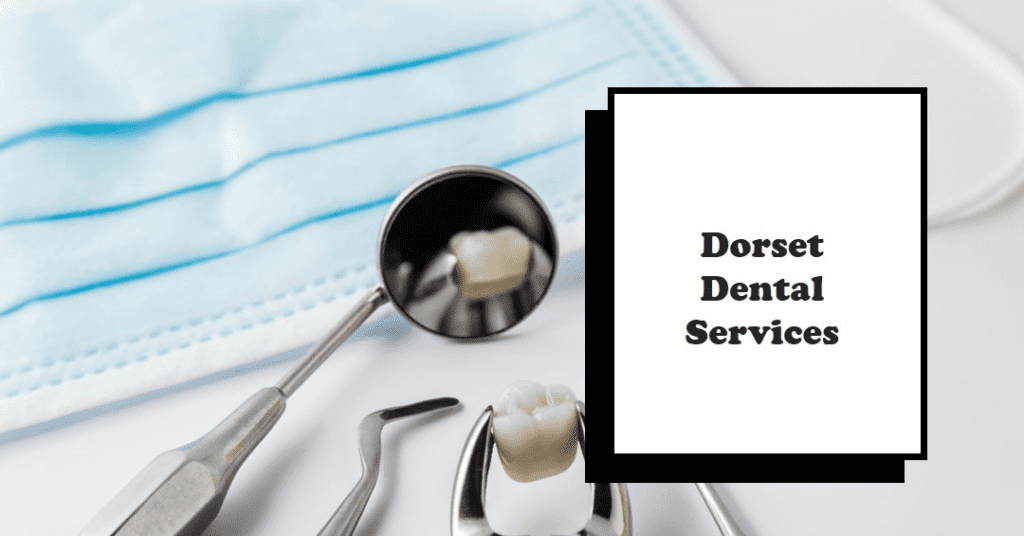
Dental health is an integral part of overall well-being. In Scarborough, one dental office stands out for its commitment to providing comprehensive dental services: Dorset Dental.
The Best Family Dentist in Scarborough: Dorset Dental
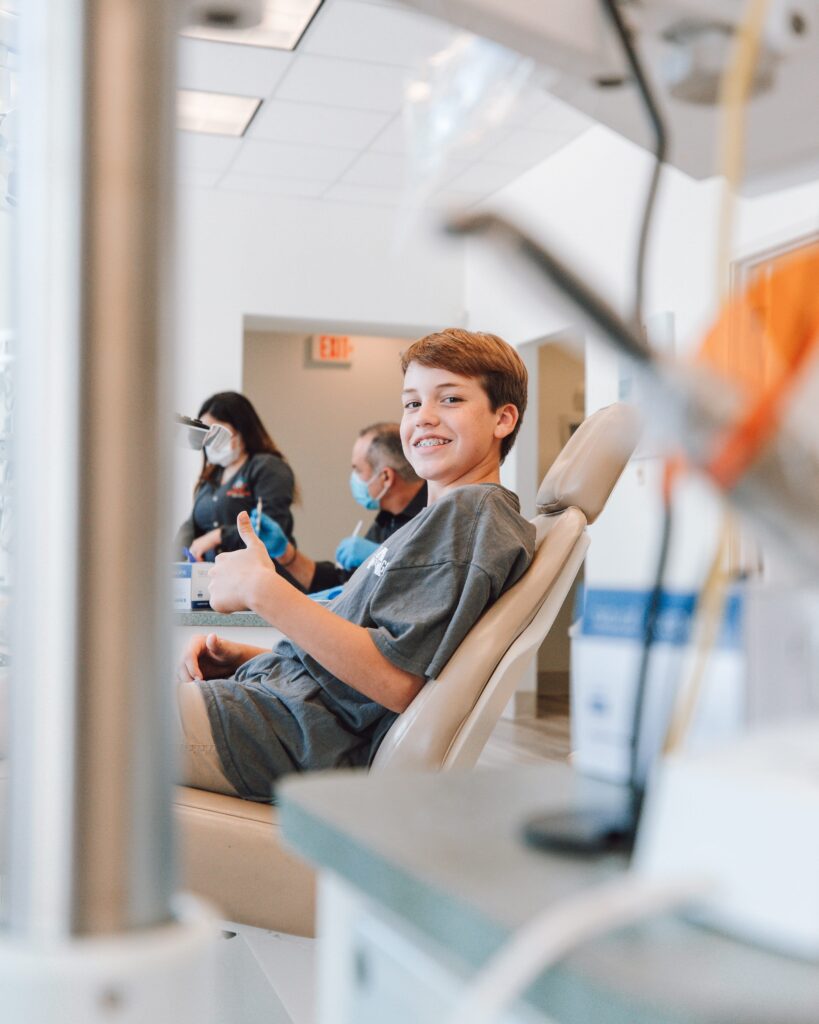
Why we are the Best Family Dentist in Scarborough When it comes to dental care for you and your loved ones in Scarborough, Dorset Dental is the top choice. Offering a comprehensive range of dental services and fostering a comfortable, friendly environment, our expert team caters to your family’s dental needs. In this detailed guide, we’ll cover everything you need to know about family dentists in Scarborough and the benefits of choosing us as your family dentist. Family dentistry at Dorset Dental is focused on providing top-quality dental care services to patients of all ages. Unlike general dentistry, which primarily deals with adult oral health, family dentistry encompasses a broader range of treatments for both children and adults. Dorset Dental Services: A Wide Array of personalized Dental Treatments At Dorset Dental, our skilled team offers a wide array of dental care services, including: Our services are tailored to address the dental health and needs of every family member, ensuring optimal oral health. The Crucial Role of Family Dental care In Scarborough Dentists who specialize in families play a vital role in maintaining oral health among adults and children alike. Regular dental check-ups and cleanings are needed and help prevent significant dental issues from developing. Allowing our dentists to detect potential problems before they worsen. Furthermore, instilling good oral habits from a young age promotes a lifetime of healthy teeth and gums. Why Dorset Dental Should Be Your Scarborough Family Dentist Opting for Dorset Dental as your family dentist offers several benefits: How Dorset Dental Can Benefit You and Your Loved Ones Our family dentists help maintain good oral health through regular dental check-ups, proper dental hygiene, and early detection of dental issues. We also offer treatments to correct cosmetic dental problems, such as teeth whitening, and veneers. What to look for in a family dental clinic in Scarborough? When looking for a family dental clinic in Scarborough, The following should be looked for Lucky for you Dorset dental meets all these needs making them the best family dentistry. Meet our experienced Dental team. Children’s Dental Treatments and Adult Cosmetic Dentistry Options at Dorset Dental At Dorset Dental, our team specializes in various treatments for children, including dental cleanings, fluoride treatments, X-rays, fillings, sealants, and orthodontics. We also provide dental education and support for parents who want to ensure their children’s oral health. For adults, we offer a range of cosmetic dental treatments, such as teeth whitening, veneers, dental implants, and braces. These treatments not only improve the appearance of your teeth but also address functional dental issues. Dorset Dental provides oral health services for patients of all ages, including: Preparing Your Child for Their First Appointment at Dorset Dental To prepare your child for their first dental appointment, talk to them about the visit in a positive light. Explain that the dentist is there to keep their teeth healthy and strong. You can also read books or watch videos. We provide free Netflix for children (or adults 🙂 ) when visiting our clinic What to Expect During Your Child’s First Appointment at Dorset Dental During your child’s first dental visit, our dentists will conduct a basic dental exam, checking the development of their teeth and gums. They will also clean the teeth, provide any necessary fluoride treatments, and discuss maintaining good oral hygiene habits at home. Ensuring Your Child’s Comfort During Their First Appointment To help your child feel more comfortable during their first appointment, discuss the visit with them beforehand, explaining what to expect. Bring their favorite toy or book to help ease their nerves. Additionally, remain calm and positive during the appointment, as your demeanor can influence your child’s comfort level. Tips for Maintaining Good Oral Health To maintain good oral health, adopt the following habits: Scheduling an Appointment with Dorset Dental in Scarborough To schedule an appointment with our Scarborough dental office visit our appointment request page or call us at 416-261-2946. Insurance and Payment Options at Dorset Dental Dorset Dental accepts all dental insurance plans. However, it’s essential to check with our office to ensure that we accept your specific insurance. We also offer various payment options, such as payment plans and credit services, to help patients afford their dental services. Please inquire about available options when scheduling your appointment. In summary, choosing Dorset Dental as your family dentist Scarborough is the best decision for maintaining good oral health for you and your family. Our professional, experienced team offers a range of dental services in a welcoming environment. Remember to schedule regular dental check-ups and cleanings and practice good oral hygiene habits at home to keep your smile healthy and radiant. FAQ Section Below are some frequently asked questions about Dorset Dental:
3 Reasons To Wear A Nightguard
Dorset Dental Blogs Dorset Dental Blogs 3 Reasons To Wear A Nightguard Many people clench and grind their teeth, especially at night whilst sleeping, which can lead to several unpleasant and painful symptoms. If you’re looking for a professional dentist in Scarborough to assist with this condition known as bruxism, the nightguard (a non-invasive treatment) may be the perfect solution for you! Nightguards prevent teeth grinding and its inevitable harmful effects by separating your top and bottom arch of teeth with soft material. Teeth clenching and grinding can result in dental problems and general physical pain, which is why it could be a good idea to have a custom nightguard made to wear. Let’s take a look at three reasons a nightguard could help you. Prevents Dental Damage Repeatedly grinding and clenching your teeth erodes the enamel on your teeth over time. Enamel is an important coating on your teeth that wards off tooth sensitivity that can be brought on by very hot or cold foods and drinks and the associated pain this can cause. Your enamel also protects your teeth from decay and fractures, which can lead to infection. Wearing a nightguard can protect your teeth from this unconscious, often stress-induced behaviour. This can save you from long-term pain and from spending time and money that you needn’t have to. Prevents Headaches Bruxism can also cause Temporomandibular Joint Disorder which affects the joint connecting the jaw and skull. Clenching and grinding your jaw can put this joint out of alignment, leading to tension in your surrounding muscles and agonising headaches and migraines. A custom nightguard will help to limit the effects your teeth clenching can have on your neck, shoulder and jaw muscles. Prevents Expensive Dentistry Grinding your teeth may break or crack a tooth, which could even lead to tooth loss. Fixing dental problems like these could involve sealants, veneers, implants, fillings, extractions, or even the dreaded root canal if the damaged tooth’s nerve becomes infected. Some of these procedures can become quite expensive, especially if they are required repeatedly over time due to chronic jaw clenching. Painful neck, ear, and jaw problems brought on by bruxism can also degrade your quality of life and may require other expensive preventative medical treatment. Instead of putting yourself and your wallet through unnecessary pain and hassle, consider staving off some of the more challenging symptoms of this condition by getting a custom, effective nightguard. A nightguard can help save you from dental challenges, headaches, and other chronic pain and save you money in the long run. Call Dorset Dental ‒ your dentist in Scarborough ‒ to book an appointment for a custom nightguard solution today or book an appointment online! BOOK AN APPOINTMENT